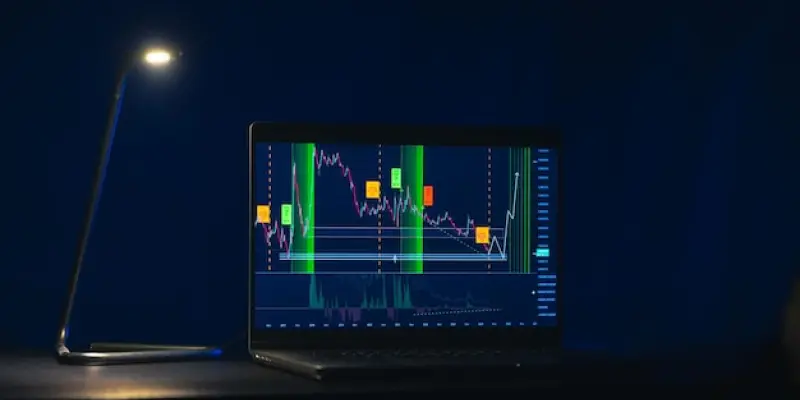In a significant development in the realm of cryptocurrency trading, TradeStation Securities has expanded its offerings by incorporating CME Group’s XRP futures contracts. This move is poised to reshape the landscape of crypto trading, providing traders with access to high-demand crypto derivatives within a regulated futures market. By offering both micro-sized (2,500 XRP) and large-sized (50,000 XRP) futures contracts, TradeStation aims to cater to a wide range of trading needs, from individual investors keen on precise market maneuvers to institutional investors requiring extensive market exposure. The motivation behind this strategic expansion reflects not only an understanding of increasing demand but also a commitment to offering secure, efficient, and regulated avenues for crypto trading.
James Putra from TradeStation highlights the importance of this initiative in diversifying portfolios while maintaining a capital-efficient trading strategy. The addition of XRP futures aligns with the financial services industry’s growing interest in providing regulated investment tools, especially as digital assets take center stage in financial portfolios worldwide. The emphasis is on facilitating a seamless trading experience that allows traders to adjust their strategies according to shifting market conditions, thereby enhancing their competitive edge. By capitalizing on CME Group’s established XRP-dollar Reference Rate, traders can now engage in trades that are cash-settled in alignment with daily XRP USD prices, ensuring transparency and fairness in each transaction.
A Strategic Move Toward Regulated Trading
TradeStation’s extension into XRP futures aligns with broader efforts to offer innovative trading instruments tailored for modern market dynamics. This strategic move underscores the importance of regulated pathways in the crypto market, meeting the exigencies of investors who prioritize security and efficiency. By leveraging the experience gained from launching other successful futures products like micro-sized grains, oilseed contracts, and Micro WTI Crude Oil futures, TradeStation is positioning itself as a pivotal player in the evolving digital asset space. The launch of XRP futures is seen as a natural continuation of their commitment to diversifying product offerings while remaining responsive to market trends and client needs.
The ever-evolving demand for regulated crypto derivatives offers an opportunity to tap into a burgeoning market segment. As traditional financial institutions show increased interest in digital currencies, the ability to trade derivatives through a regulated platform becomes increasingly valuable. TradeStation’s initiative is a response to these market conditions, creating opportunities for investors to engage with digital asset trading through a reputable and secure medium. This approach not only caters to existing client bases but also attracts potential investors looking for robust trading options amidst an increasingly standardized crypto landscape.
Implications for the Crypto Trading Industry
The introduction of CME XRP futures by TradeStation may indeed set a precedent for other financial service providers contemplating similar offerings. With cryptocurrency markets known for their volatility, the attraction of futures contracts lies in their capacity to offer hedging strategies against unpredictable price shifts. By facilitating access to such futures, TradeStation is addressing a crucial need for both speculative and risk-averse traders. Giovanni Vicioso from CME Group recognizes the significance of this addition, emphasizing the provision of liquid and efficient instruments for strategic investment and hedging, which is pivotal for industry progression.
Furthermore, as the crypto market continues to mature, the relevance of regulated futures contracts is underscored by increasing interest from both retail and institutional investors. TradeStation’s decision to introduce XRP futures signals a broader industry shift towards providing diverse and secure trading options. This reflects an acknowledgment of the critical role derivatives play in managing risk and optimizing portfolio profitability. As digital currencies become more ingrained in global financial systems, tools like CME’s XRP futures prove indispensable, offering traders a structured environment to engage in asset trading under regulated oversight.
Future Directions in Digital Asset Trading
In a noteworthy advancement for cryptocurrency trading, TradeStation Securities has enriched its portfolio by integrating CME Group’s XRP futures contracts. This strategic move is set to redefine the crypto trading sphere by offering traders access to highly sought-after crypto derivatives within a regulated futures platform. TradeStation provides both micro-sized (2,500 XRP) and large-sized (50,000 XRP) futures contracts, targeting a diverse array of trading demands—from individual investors eyeing precise market actions to institutional investors pursuing significant exposure. The impetus for this expansion is driven by increased demand and a dedication to secure, efficient, and regulated trading options. James Putra from TradeStation underscores the importance of diversifying portfolios while maintaining capital-efficient strategies. This initiative aligns with the financial sector’s growing desire for regulated investment tools, as digital assets gain prominence in financial portfolios globally. Utilizing CME Group’s XRP-dollar Reference Rate, traders can engage in cash-settled trades that mirror daily XRP USD prices, ensuring transparency and fairness in transactions.

